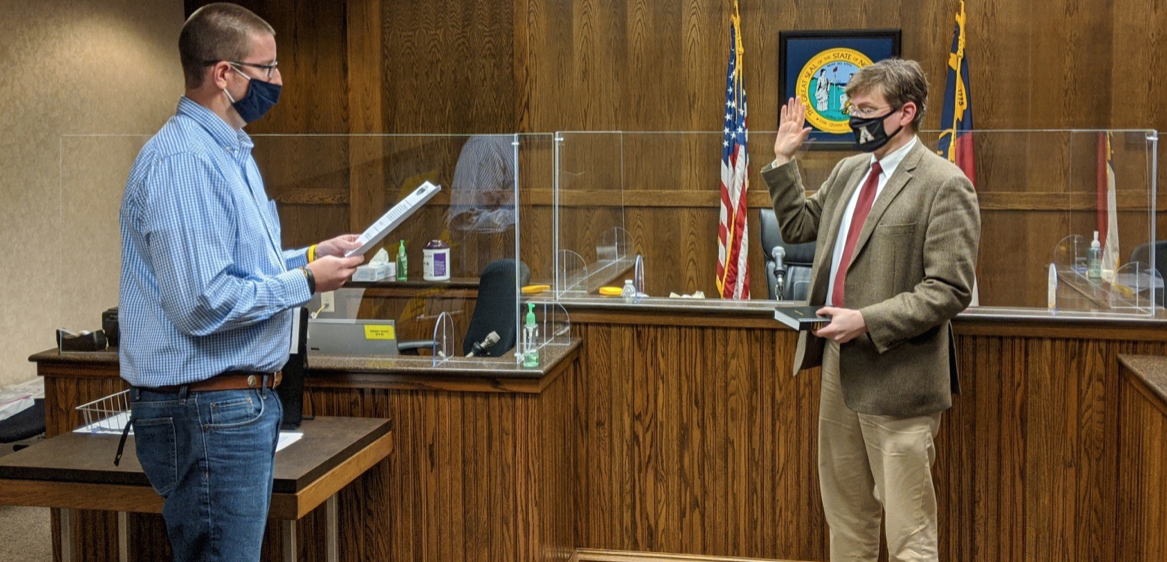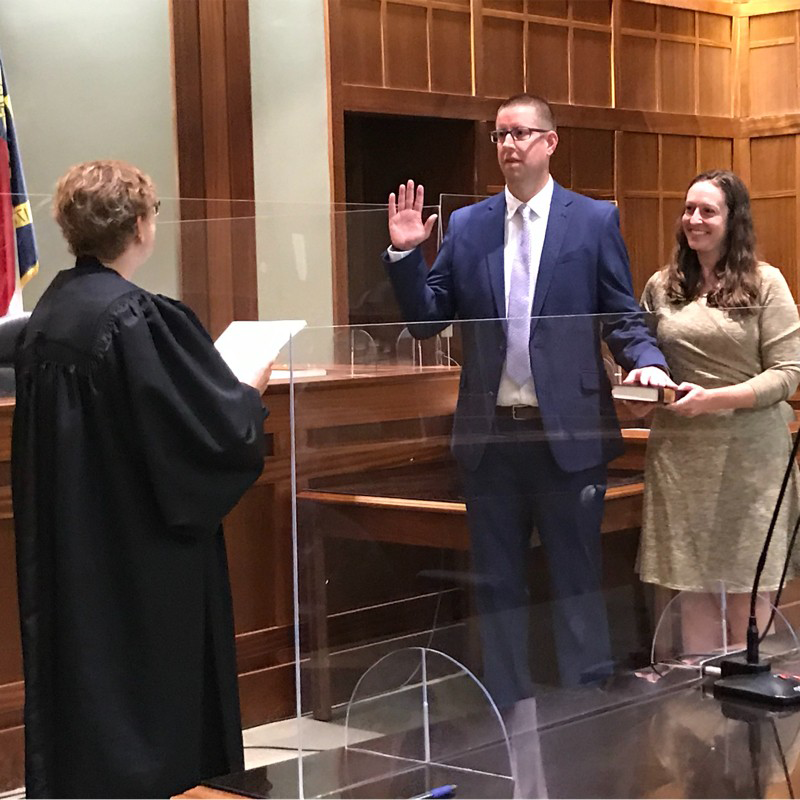
The CLERK OF SUPERIOR COURT is a constitutional office and is the hub of all judicial proceedings in each of the 100 counties in the state of North Carolina. Clerks provide direct access to justice and to our courts.
The CLERK OF SUPERIOR COURT has FIVE main responsibilities and authorities in all 100 counties:
Unlike Clerks of Court in other states, in North Carolina the clerk of superior court is PROBATE JUDGE. As judge of probate, the clerk holds exclusive original jurisdiction over matters relating to the probate of wills and the administration of estates, including appointing personal representatives, auditing the accounting of representatives, and removing them from office if necessary. The clerk also presides over adoptions, competency, power of attorney and guardianship proceedings, condemnation of private lands for public uses, partitions of property, foreclosures, and many other civil hearings, with jurisdiction over 46 types of actions.
As ADMINISTRATOR, the clerk is charged with performing multiple ministerial acts such as the issuance of summons, setting up the court file, docketing and indexing case files, as well as issuing subpoenas to compel the attendance of an in-state witness and / or to compel the production of documents.


As RECORD KEEPER, the clerk of court is solely responsible for the integrity of every case filed. This includes filing, processing, indexing, and maintaining every piece of paper filed each year in the North Carolina General Court of Justice. All lawsuits, civil actions, criminal, proceedings, or other matters brought before the court are filed in the clerks’ office. These records must be secured and maintained in a safe place not only for current use but for reference purposes and future examinations of all proceedings involving a person or persons. Except for juvenile files, adoption records and certain other confidential records, each document in the clerks’ office is a public record and available for inspection at a reasonable time and place.
As COMPTROLLER, the clerk of superior court is responsible for receiving, investing, and disbursing millions of dollars each year that come from court fees, traffic citations, fines, and other court related activity. On average, clerks of superior court receipt of $600+ million to North Carolinians and to state and local governments.
Finally, as a LEADER in their offices, the clerks of superior court supervise and manage over 2,650 employees statewide (43% of the Judicial Branch). While each county’s staffing and resources may vary, the methods and mechanics of each clerks’ office are very similar. There are typically six divisions (criminal, civil, juvenile, special proceedings, estates, and bookkeeping) with assistant clerks, deputy clerks, and a bookkeeper that staff the divisions. The size of clerks’ office can range from a minimum staffing level of 5 to over 200 employees
The role of the clerk of superior court
and ex officio judge of probate in the
North Carolina Judicial Branch.
Approximately 1 in 4 people in each county visit the clerks’ office each year.
Here are just a few examples of reasons why people might have to visit the clerks’ office:
- They are a Victim of Crime(s)
- To Perform Jury Service
- To Probate A Family Member’s Will
- To file for A Divorce
- To Handle a Speeding Ticket